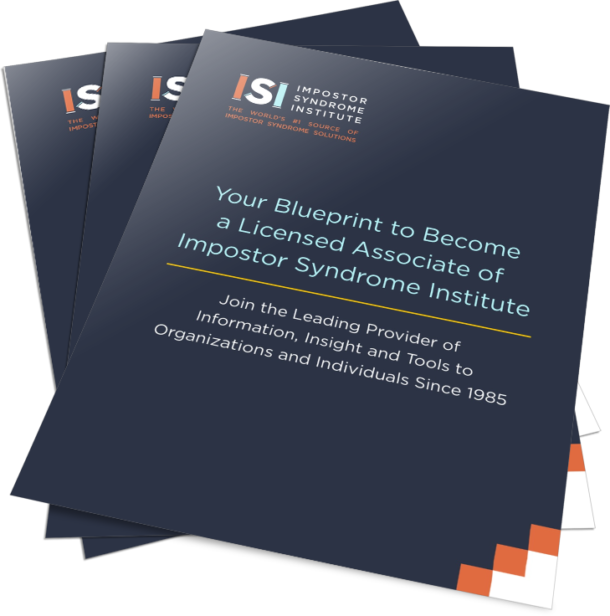There is no shortage of people with strong opinions about impostor syndrome. While everyone is, of course, entitled to their own opinion, in many cases, they are uninformed.
I don’t expect the general public to do a deep dive into the research. After all there are countless hundreds of studies on impostor phenomenon.
But I do expect therapists, coaches, advisors, mentors, or really anyone who works directly with individuals who may experience impostor syndrome, to be informed.
Case in point: I recently saw a Linkedin post from an executive coach who insisted that the root cause of impostor syndrome is feeling unworthy.
Nonsense.
Do you really think the reason Michelle Obama identifies with impostor syndrome is because she feels unworthy?
Or for that matter that groups known to be susceptible to impostor syndrome feel more “unworthy” than others?
I’m talking here of…
- People who work in information dense, rapidly changing fields — like STEM
- Or college students whose knowledge and intellect are literally being tested every day
- Or medical students must who must operate in what one described as a culture of shaming
- Or doctoral students and academics working in a culture of constant critique — little of it positive
- Or writers, actors, artists, and others who otherwise work in creative fields and whose work is constantly being judged by subjective standards by people whose job title is “professional critic”
- Or those who are the first generation in their family to go to college
(Pauline Clance, one of the co-coiners of the term impostor phenomenon traced her own impostor feelings to growing up in a poor family in an impoverished area in West Virginia and going on to earn a PhD.)
- Or groups on the receiving end of societal stereotypes about competence and intelligence based on race, gender, age, disability, language, or class… among them, people who — like the former First Lady — know the pressure of having to represent their entire group.
To be clear, impostor syndrome is an internal experience.
And there are, of course, people who struggle with a universal sense of unworthiness and have this habitual fear of being exposed as a fraud.
But none of us exist in a vacuum.
So whether you struggle with impostor feelings yourself — or you coach, advise, or lead people you suspect to be — don’t assume worthiness is the issue.
Instead make it a point to educate yourself as to what I refer to as “the perfectly good reasons” why you or others might feel like an impostor.
Only by understanding these external sources of impostor syndrome can you help yourself — or others — to personalize less and contextualize more.
Being informed is what enables you to help yourself to essentially flip the narrative from, “Why do I (or others) feel like an impostor?” to “Under the circumstances, how could I (or they) not?”
That said, as important as it is to have accurate information about the societal, familial, occupational, situational, and organizational sources of impostor syndrome — none of these are the CORE source.
The core source of impostor syndrome comes down to having:
- an unrealistic, unsustainable notion of what it means to be “competent”
- an unhealthy response to failure, mistakes, setbacks, and constructive feedback, and
- the false belief that if we were “really” competent, intelligent, qualified we’d feel confident 24/7… (good luck with that!)
After all, if you (or others) knew you were entitled to make a mistake once in a while… to have an off day… to struggle to understand something or master a skill… to not know everything… to be in the midst of a learning curve… to ask for help… to not always be perfect… then there would be nothing to feel like an impostor about.
Bottomline: Unlearning impostor syndrome starts with being informed.
The more informed and knowledgeable you are, the more confident you feel.
The more informed and knowledgeable you are, the more confident you can empower others to feel.
Coaches around the world come to Impostor Syndrome Institute™ to become better informed through our Impostor Syndrome-Informed Coach™ training.
This program gives coaches, mentors, counselors, and external HR and/or DEI consultants the information, personal insight, and proven tools necessary to effectively work with individuals experiencing impostor syndrome.
Wangari Maathai, the first African woman to win the Nobel Peace Prize said it best:
“We often preoccupy ourselves with the symptoms, whereas if we went to the root cause of the problems, we would be able to overcome the problems once and for all.”



